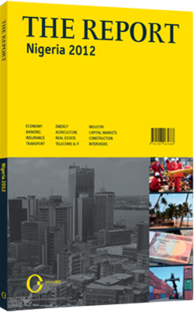Local heroes: Domestic firms increase their role in the hydrocarbons sector
At the moment, it is the big international players – or the ventures involving them – that extract most of Nigeria’s oil and gas. In 2011, in fact, the respective proportions were around 90% and 95%. However, local players are not to be underestimated and look to be growing in importance as time passes.
MARGINAL UTILITY: The first major push by authorities to promote local companies’ role in extraction came in 2004, when the government took small fields that international oil companies (IOCs) had failed to develop and allocated them in 24 packages to 31 Nigerian firms. These were “marginal” fields from an IOC standpoint alone: the theory was that local businesses, with overheads lower than the big players, would be able to make the best of fields that were capable of output in the range of 5000-10,000 barrels per day (bpd).
And it worked, or at least in some cases. Of the 24 awards, five have prospered while the rest have fallen by the wayside. The reasons were various. In some instances, the government created joint ventures (JVs) by “forced marriages” that proved to be unhappy. There were also some financial challenges. Investment funds for oil projects – even for relatively small fields – have been, and to some extent remain, fairly difficult to access from risk-averse Nigerian banks.
But there have been winners, including Energia, Pillar Oil, Platform Petroleum, and Waltersmith Petroleum and Production Company. Midwestern Oil and Gas is a 70% partner in one of the most flourishing fields, which has been producing since 2008. “We’re doing around 12,000 bpd at present,” Adams Okoene, the CEO of Midwestern, told OBG. “We have the potential to do 15,000, but evacuation is a bottleneck.” Currently dependent on facilities owned by Italy’s Eni, Midwestern is planning to build a 53-km pipeline. Okoene is also mulling a small co-generation facility to use associated gas that is flared at present.
The locals do not just have nimbleness on their side. They may also be more adept than foreign companies on managing relations with local communities, which can be very tricky in the Niger Delta. “It takes up a lot of time. I personally direct a lot of community issues,” says Midwestern’s CEO. “People have to see that you’re passionate and have to associate you with integrity.”
SHELL GAME: Local firms have also benefitted from Shell’s decision to sell some of its onshore assets, a move that was supported by the government but also in line with the company’s strategy to reposition its onshore portfolio. With the 2010 Local Content Act requiring that priority in such sales be given to local buyers, indigenous firms have had success in acquiring the rights to these fields. This piece of legislation has also generally supported the development of Nigerian businesses in the sector, according to Seun Faluyi, the managing director of Global Oceon Engineers Nigeria. “The Local Content Act has given indigenous companies an excellent opportunity to develop their presence on the international level,” he told OBG.
The first Shell deals were made in 2010, when the oil giant sold its interests in three blocks to Seplat, a JV between two Nigerian firms (Platform Petroleum and Shebah Petroleum Development Company) and France’s Maurel and Prom. Seplat has doubled output on the blocks to over 40,000 bpd. Another sale has been to First Hydrocarbon Nigeria.
Most recently, in August 2012, Shell sold its interest in onshore oil block 34 to a consortium comprising state oil company Nigerian National Petroleum Corporation (NNPC) and a local company, ND Western. For its part, NNPC has made it clear that its participation will be active: the block will help NNPC’s production company, the Nigerian Petroleum Development Company, raise its output up to 250,000 bpd.
Although Shell still has blocks to sell, locals’ eyes may be shifting to other foreign assets. In June 2012, US firm ConocoPhillips signalled its intention to withdraw from Nigerian activities, including onshore and offshore blocks. Conoil and another local heavyweight, Oando, are interested, as are several global players. The competition – or cooperation – could be worth watching.
You have reached the limit of premium articles you can view for free.
Choose from the options below to purchase print or digital editions of our Reports. You can also purchase a website subscription giving you unlimited access to all of our Reports online for 12 months.
If you have already purchased this Report or have a website subscription, please login to continue.

